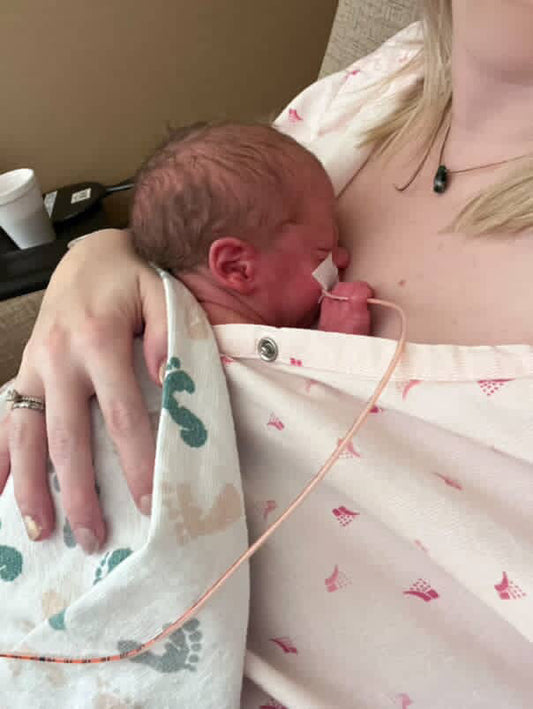Share
Are Epidurals Safe?
Amritpal SinghTo answer this important question, Bonsie interviewed a labor and delivery registered nurse and doula, Noor Al-Alami, RN, MSN, RNC-OB, LEC.

Caroline, Max, and their sons George and Charlie
Here’s what Noor had to say about epidurals, labor, and different intervention options:
“Epidurals are very safe procedures that are done 24/7 in labor and delivery. However, it’s important to wait until you are in active labor before getting one."
"Labor and delivery nurses will often tell you that when laboring mothers enter active labor (around 6cm) their labor does not slow down after getting an epidural. When epidurals are placed too early (less than 3cm), this makes for very long labors and more interventions. It’s important to stay as mobile as possible for labor to progress.
So, if your plan is to get an epidural, try to progress as far as possible before getting one. Nonetheless, pain is subjective, so if you really feel you need one in the moment, it will not be held back from you.
On that note, there are many non-pharmacological comfort methods to help you stay mobile in labor, like getting in the shower (hydrotherapy), using birthing balls, spinning babies, music, aromatherapy, and massage as a distraction.
Position changes and breathing techniques aid in helping the baby descend and rotate into the correct delivery position. Listening to birth affirmations help as well as decreasing stimuli and creating a serene environment in the room (like turning down the lights and putting out tea light candles). One of my patients actually went to complete dilation playing cards with her husband! It’s all about the art of distraction sometimes.
So, to answer your question: Yes, epidurals are very safe, but make sure you’re in active labor before you get one in order to avoid long labor and unnecessary interventions.”
We also spoke with Caroline Wilber; Caroline is a designer and mother of two. She received an epidural during labor with both of her sons and is happy with her birthing experience.
“I decided to get an epidural to help with the pain of labor. The anesthesiologists are well trained professionals who do them all the time! I didn’t have any complications. I was carefully monitored throughout the entire process.” Caroline said in an interview with Bonsie.
Caroline was induced at 39 weeks and received her epidural when she was dilated to four centimeters. While receiving her epidural, she said she just felt a “little pinch” after they numbed the area on her back.
Caroline was induced at 39 weeks and received her epidural when she was dilated to four centimeters. While receiving her epidural, she said she just felt a “little pinch” after they numbed the area on her back.
“Everything went really smoothly; it was a textbook induction! I know it doesn’t always happen like that, but I liked how controlled the experience was: Step one, complete, etc. I am so happy with my decision to receive an epidural. Even with the epidural I had some painful contractions; I can’t imagine doing it again without it."
"I still felt very in touch with my body and my delivery. I will do it again!”
Caroline is expecting her third baby and plans to receive an epidural again.
Our goal at Bonsie is not to advocate for or against an epidural, but to provide you with helpful information from professionals and a wide range of perspectives from mothers. Caroline understood that she could opt out of an epidural, but she chose to get one because she believed it was best for her. Knowledge is power! If you are an expecting parent, ask a lot of questions and learn as much as you can about your labor options so you can create a birth plan that is right for you.
Share
-
Category:
- All posts



